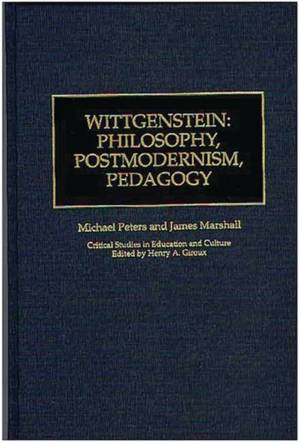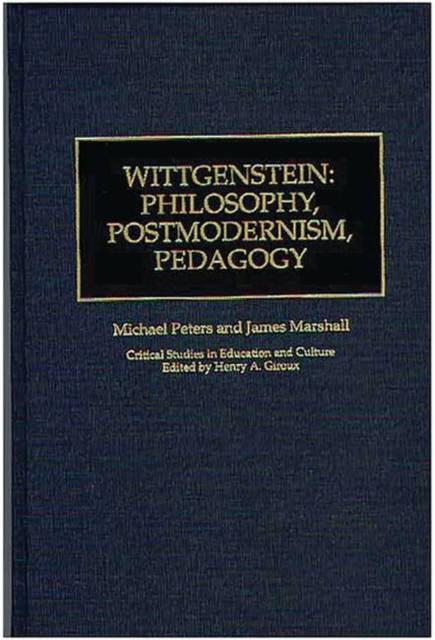
- Retrait gratuit dans votre magasin Club
- 7.000.000 titres dans notre catalogue
- Payer en toute sécurité
- Toujours un magasin près de chez vous
- Retrait gratuit dans votre magasin Club
- 7.000.0000 titres dans notre catalogue
- Payer en toute sécurité
- Toujours un magasin près de chez vous
Description
Peters and Marshall examine the parallels between the later Wittgenstein and French poststructuralism and investigate the direct appropriation of Wittgenstein's work by poststructuralists. They discuss the most pressing problems facing philosophy and education in the postmodern condition: ethico-political lines of inquiry after the collapse of the grand narrative, other cultures in the curriculum, and the notion of postmodern science.
Wittgenstein is a central figure in contemporary Anglo-American philosophy. His writings serve as a fulcrum in both modern philosophy and philosophy of education, charting the shift away from the formalist approach of logical atomism to the more anthropological emphasis on language games in the analysis of ordinary language. Wittgenstein's work served as a springboard for a range of today's leading intellectuals: Peter Winch, Thomas Kuhn, Richard Rorty, Stephen Toulmin, and Stanley Cavell.
Wittgenstein is the source and authority for legitimating analytic philosophy of education--the so-called London school--as a distinctive field of intellectual endeavor based on the method of conceptual analysis and the search for necessary and sufficient conditions.
Spécifications
Parties prenantes
- Auteur(s) :
- Editeur:
Contenu
- Nombre de pages :
- 248
- Langue:
- Anglais
- Collection :
Caractéristiques
- EAN:
- 9780897894807
- Date de parution :
- 28-02-99
- Format:
- Livre relié
- Format numérique:
- Genaaid
- Dimensions :
- 161 mm x 244 mm
- Poids :
- 585 g

Les avis
Nous publions uniquement les avis qui respectent les conditions requises. Consultez nos conditions pour les avis.






